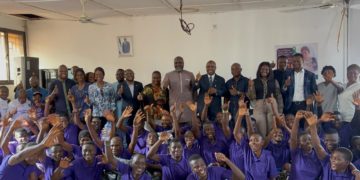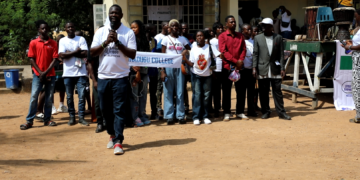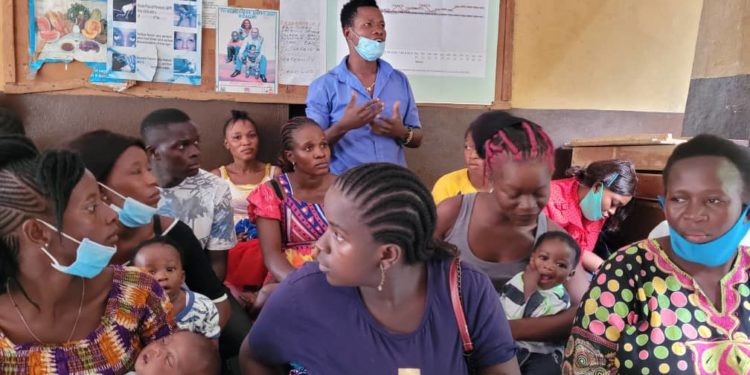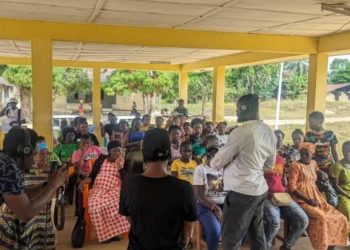Lack of involvement of male spouses in parenting is a major contributing factor to low uptake of vaccines in Sierra Leone, service providers and campaigners say.
They say suckling mothers and pregnant women get little or no support from their male spouses, thereby depriving them of resources to enable them access services or the knowledge on the importance of vaccination.
This is just one of several factors highlighted and deliberated on during the just concluded African Vaccination Week (AVW), an
annual event celebrated during the last week of April (24th – 30th). It’s part of the World Immunization Week, which is a World Health Organization (WHO) designated day designed to raise awareness about the importance of vaccines.
WHO considers immunization as one of the most successful and cost effective interventions in public health.
The goal of AVW is to strengthen immunization programmes by
keeping it high on the national and regional agendas through advocacy and partnerships. Countries also use it to promote delivery of other high impact lifesaving interventions.
The global theme for this year was: ‘Long Life for All.’
In Sierra Leone, the Children Advocacy Forum (CAF-SL) collaborated with the Ministry of Health and Sanitation (MoHS) to mark the event. CAF-SL facilitated a series of online discussions on the importance of routine immunization, involving service providers at national and district levels, as well as beneficiaries.
Mohamed Samura, Programmes Manager at CAF-SL, who coordinated the event, says the goal was to provide a platform to discuss the issues militating against vaccine uptake and identify possible interventions. CAF-SL worked with the MoHS’ Health Education Program and the Expanded Program on Immunization (EPI) units.
The engagements took the form of a dialogue with immunization service providers, community awareness raising engagement and online discussions moderated by social media influencers.
At the Dwarzak Community Health Center in the Western Area Urban district, health workers highlighted and discussed the major barriers to immunization uptake within the communities they serve.
Community Health Nurse Adama Kallah represents the EPI at the facility, which caters for thousands of people in the west end of the capital, Freetown. She says despite progress made through sensitization in recent years, there is still unacceptably low uptake. Ms Kallah blames it partly on the failure of the male parents to assume their responsibilities as heads of the family.
“In our part of the world the men are heads of the family. If the father pursues the vaccination issue, we are sure to succeed,” she stresses.
“Men have always felt that they shouldn’t partake in taken care of the babies. They just think they should provide food money and the rest is in the hands of the women,” she laments.
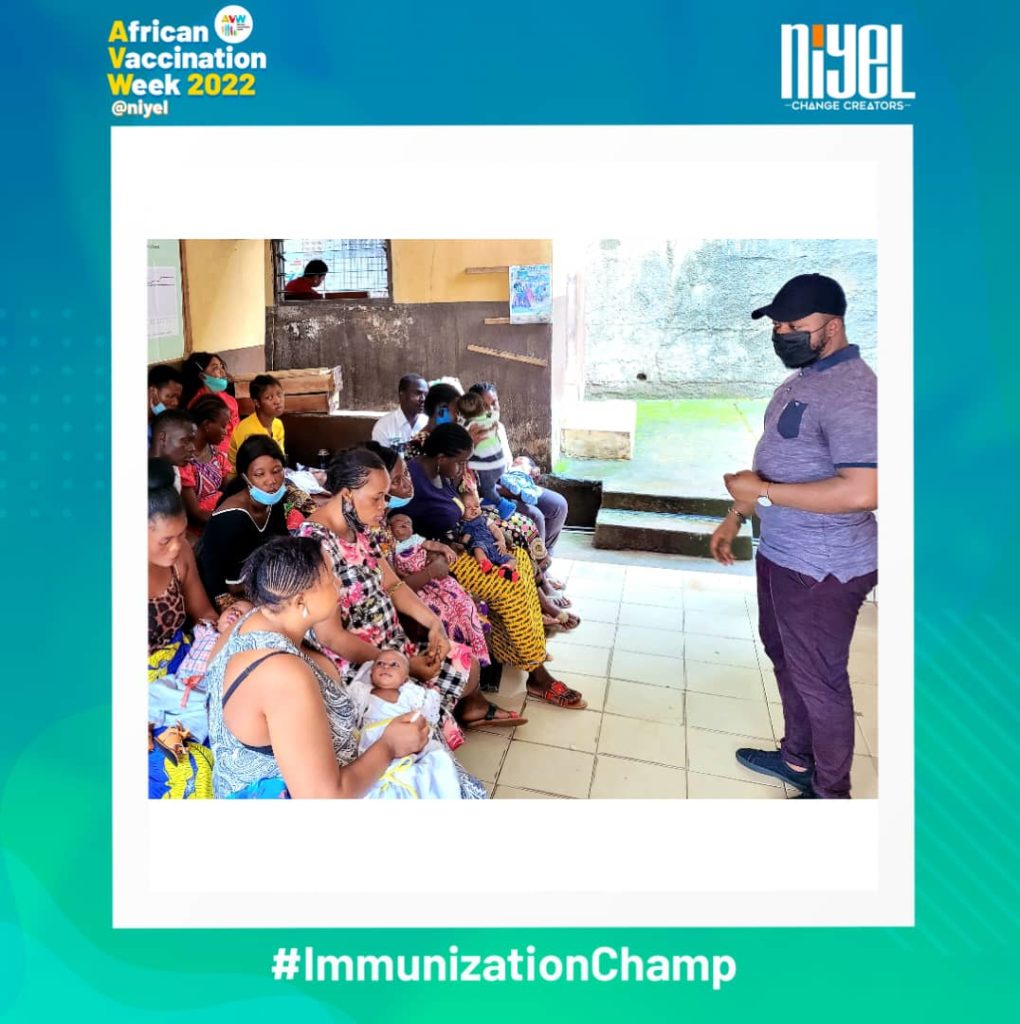
The online discussions targeted audiences on Facebook and Whatsapp, the two most popular social media platforms in Sierra Leone. Issues undermining vaccine uptake were discussed.
Mr Samura explains that four Whatsapp group discussions were held, each group consisting at least 250 participants.
There was also a radio discussion programme hosted by the African Young Voices Media Empire. Samura says these platforms were identified on the basis of their large audiences.
The events were hosted with part funding from the Dakar-based advocacy NGO Niyel, and coordinated by the WHO regional office for Africa. Through this collaboration, these organizations aim to mobilize 200, 000 people across the region to raise awareness on the importance of routine immunizations and discuss potential strategies to scale up uptake. In Sierra Leone, CAF-SL and its partners intend to mobilize 1000 people online as contribution to this number.
According to WHO, for over two centuries, vaccines have safely reduced the scourge of diseases like polio, measles and smallpox, helping children grow up healthy and happy. The global health body says that vaccines save more than five lives every minute – preventing up to three million deaths a year.
Sierra Leone has about a dozen vaccines on its routine immunization programme, targeted at babies, adolescents as well as adults. These include vaccines for Diphtheria, Hepatitis, Tetanus, Influenza, Measles/Rubella, Pneumonia, Polio, Rotavirus, TB and Yellow Fever.
Campaigners say apathy towards vaccination was worsened by the impact of the ongoing COVID-19 pandemic, pointing out that misconceptions surrounding the COVID vaccines, although moderate, continues to serve as a barrier to the routine immunization service.
Shortly before the outbreak of COVID in early 2020, Sierra Leone had 79 percent coverage of children fully vaccinated for a total of eight vaccine-preventable diseases at the time, according to data from the MoHS. It was still lagging behind the global target of minimum 95 percent coverage.
Globally, data show that vaccination coverage has dropped over the last decade, due to various factors. The pandemic in the last two years further worsened the situation as it strained health systems, according to WHO data, which shows that 23 million children missed out on vaccination in 2020, 3.7 million more than in 2019 and the highest number since 2009.
Pneumonia and diarrhea are among the top killers among children in Sierra Leone. Polio and Measles, two highly infectious diseases that affect children, also remain major public health threats in the country.
Polio is said to be at elimination stage, but persistent sporadic outbreaks point to the need to close vaccination gaps.
Measles, described as one of the causes of high deaths among infants, also remains persistent. Sierra Leone introduced the combined Measles and Rubella vaccine in June 2019.
Measles and Rubella are different diseases with similar characteristics. Both are caused by virus and have similar symptoms, which makes efforts to deal with the former difficult, hence the combined vaccine. The vaccine is also given to adolescents of up to 15 years.
Hepatitis B is also a major life-threatening disease for children.
A recent study by the United States CDC on Hepatitis B among babies in Sierra Leone suggests that while cases have lowered, infections in children continue to occur at birth or prior to receiving their first vaccine dose.
It is recommended for babies to be vaccinated against Hepatitis B within 24 hours of birth, followed by 2-3 doses within 6 months.
BCG is used to prevent against TB. Sierra Leone is ranked among top 10 countries with the highest TB burden in the world. It records about 23, 000 infections annually, with about 3, 000 fatalities, according to WHO data.
During the online engagement with social media influencers, a ‘fun challenge’ was organized, in which participants were asked to share a snapshot of their BCG vaccination scars, in exchange for telephone airtime.
“The BCG scars challenge was meant to keep the conversation more interesting and it was an opportunity to showcase its relevance as a means to prevent newborn babies from Tuberculosis,” says Samura.
For Nurse Kallah, more children will get vaccinated if their fathers take the lead in their up bringing. And her facility, the Dwarzak Health Center, has been working on a strategy geared towards this, she says. As part of their sensitization activities, she notes, they encourage fathers to accompany their wives to hospital for either antenatal clinics or for the routine vaccines for their babies.
According to Kallah, they even introduced an annual awards ceremony, recognizing “best fathers” who accompany their babies to hospital, as well as for women who regularly attend ANC sessions and ensure their babies get all the recommended vaccines.
When a man accompanies a baby to hospital, nurses at the Dwarzak health center give him priority treatment over women. And Kallah says this is their way of encouraging other women to entice their husbands to take their babies to hospital.
Kallah says because in societies like Sierra Leone many are always more educated than women, they are in a better position to educated their wives on the importance of ensuring their babies get all the vaccines.
She stresses that a lot more actions are needed to improve on the current vaccination coverage.
More community engagements, including with stakeholders like local chiefs, are needed, she says, noting that health workers also can help by talking more on the importance of taking care of the vaccination cards which shows progress in a child’s vaccination history.





